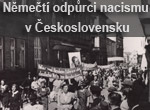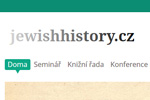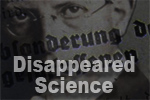Oral History Centre
Hlavní stránka » pages » Research Units » Oral History Centre »
Oral History
As a method of historiography, oral history has a particularly valuable place in the realm of qualitative research. In situations where a wide range of resources has either been destroyed or is, for one reason or another, inaccessible, it is irreplaceable. In such cases indeed, oral history is very often the only font of information. For this reason oral history is of very special importance in research into totalitarian societies, where no plurality of sources exists and where documents of state and party provenance predominate, and, what is more, where such records often only reflect those occurrences that were considered as significant by the ruling elite. In a period of systemic change, neither representatives of faltering institutions nor of those rising to take their place are especially concerned about the safeguarding and archiving of documents stemming from their activities. Some key incidents indeed are not covered by any written documents. To fill this gap, memories and narratives of witnesses from the time in question help because they enable us to broaden our factographical base and, in conjunction with other sources, to carry out a more fruitful analysis of historical events. The gathering of facts, however, is not in itself the main priority of oral history. Rather, the focal point of the exercise is the actual subject of the interview, the contemporary observer, his or her individual message, personal experience, handling of difficult everyday situations, motivation, and the like.
To further the systematic development of the methodology of oral history and its application in historiography, the Centre of oral history (hereinafter termed COH) was established in 2001 as an integral part of the Institute of Contemporary History of the Academy of Sciences of the Czech Republic. The tasks COH has dedicated itself to, and the role it seeks to play in fulfilling them, as far as research into recent Czech history is concerned, are similar to those of other centres of oral history around the world. In terms of providing a model for COH, the most important such centres are those whose emphasis is on essential research carried out by using the methodology of oral history. Prominence is also given in COH to educational activities, such as seminars, lectures, and conferences. In addition, COH archives, controls and administers their own collections of interviews and offers consultations to individuals interested in their method.
Essential Research
The primary objective of COH is essential research, i.e., to map and interpret certain historical events, phenomena, and controversies using oral sources. The goal, however, is not the gathering of the data per se, but on how the material is sifted and incorporated into the common, shared context after it has been collected. COH has received grants from the Grant Agency of the Academy of Sciences of the Czech Republic and from the Grant Agency of the Czech Republic for essential research carried out as a component part of its most notable projects. The following would be cases in point: “Students in the time of the fall of communism. Biographical Interviews” (Studenti v období pádu komunismu. Životopisná interview; publication – Miroslav Vaněk, Milan Otáhal, “One Hundred Student Revolutions”, Sto studentských revolucí); “Political elites and dissent in the time of normalization” (Politické elity a dissent v období tzv. normalizace; publication of edited interviews – Miroslav Vaněk, Pavel Urbášek, [eds.]); “Winners? Losers?” (Vítězové, Poražení; symposium of interpretative studies – Miroslav Vaněk [ed.], “Powerful powerless and Powerless powerful”, Mocní bezmocní a Bezmocní mocní); and also “A survey of Czech society at the time of the so-called normalization. Biographical narratives of members of the working-class, the professional class and the intelligentsia” (Průzkum české společnosti v období tzv. normalizace. Biografie příslušníků dělnických profesí a intelligence; upcoming publication of Miroslav Vaněk [ed.]); “Ordinary people…?! A look into the life of the so-called silent majority. Biographical narratives of members of the working-class, the professional class, and the intelligentsia” (Obyčejní lidé…?! Pohled do života tzv. mlčící většiny. Životopisná vyprávění příslušníků dělnických profesí a intelligence) is expected to be brought out by the Academia publishing house during the course of 2009.
All these projects were completed as a result of the financial support of the Grant Agency of the Czech Republic and were warmly received not only in the domestic environment, but also abroad, where a high degree of interest was shown in their findings. The successful outcome clearly demonstrates how oral history, “history from the bottom” so to speak, can contribute significantly to our fund of common historical knowledge. This burrowing beneath the surface as it were helps us to understand why individuals acted in a particular way, why certain postures were adopted, opinions formed, and decisions made. By investigating how trends, incidents, opposition groups, student movements, the hierarchy of the communist party, and the like were perceived at the time and what effect such perception had on the routine one-day-in-the–life round of the ordinary man or woman in the street, researchers can flesh out our often insubstantial notion of past events.
Currently, teams from COH are working on a grant-sponsored project entitled “Sociable aspects of the country-cottage subculture attached to the study of everydayness in the period of the so-called normalization” (Společenské aspekty chalupářské subkultury při studio každodennosti v obdbí tzv. normalizace). This research is supported by the Grant Agency of the Academy of Sciences of the Czech Republic 2007-2009. Also underway is the project “Social and political aspects of the existence and development of independent music genres and trends in the Czech Republic from the 1960s to 1989” (Společenské a politické aspekty existence a rozvoje nezávislých hudebních žánrů a trendů v České republice od 60. let do roku 1989). This project is backed by the Grant agency of the Academy of Sciences of the Czech Republic 2006-2009. Among the national and international institutions COH cooperates with in its scholarly undertakings are Collegium Hieronymi Pragensis, DAMU, the Theatre Institute and the Theatre Archa in Prague, the Czech Centre – London, the Ethnological Institute SAV in Bratislava, and Zentrum für Zeithistorische Forschung in Potsdam.
In addition to its research activities, COH tries to resolve theoretical and methodological issues related to oral history. This it does by means of publications, lectures, media contributions, and individual consultations. Miroslav Vaněk’s recent publication, “Oral history in the research of contemporary history” (Orální historie ve výzkumu soudobých dějin) and “Listening to the voices of memory: theoretical and practical aspects of oral history” (Naslouchat hlasům paměti: teoretické a praktické aspekty orální historie) by Miroslav Vaněk, Pavel Mücke, and Hana Pelikánová would be examples. Indeed, oral history today, if one is to judge by the latest trends in the academic world, is considered not just a research method but an interdisciplinary branch of learning in its own right. Since 2001, COH has organized an annual international and interdisciplinary meeting of supporters of oral history at the castle of Sovinec, and, again at the instigation of employees from COH, a professional umbrella organization, known as the Czech Association of Oral History (Česká asiciace orální historie), was founded in 2007 (www.oralhistory.cz).
Oral history – international cooperation
COH has established contacts and initiated cooperation with similarly oriented academic and scholarly institutions abroad. Particularly successful in this regard would be COH’s relationship with the Center for Slavic, Eurasian, and East European Studies and the Southern Oral History Program (SOHP) at the University of South Carolina in the United States. In addition to its ties with South Carolina, COH liaises with both the Center for Slavic, Eurasian, and East European Studies at the University of Texas and with Endicote College. Mention might also be made of COH’s links with the Centre for Research in Contemporary History at Postdam, the Institute of Historical Science of the Humboldt University in Berlin, with whom it undertook a study of past and present political elites, as well as with the oral history section of the British National Library and with the Milan Simečka Resource Centre in Bratislava.
Since 2002, COH has been a member of the International Oral History Association. In September 2008, Miroslav Vaněk was elected to the executive committee of the organization and also appointed its European representative for the following two years. Noteworthy, too, is COH leadership in the project entitled “We lived under socialism” (Žili jsme v socialismu) which, with the cooperation of foreign partners and with proposed EU grant support, will run from 2009-2013. The objective of the study is to use the method of oral history to map the lives of ordinary people in the countries that made up the former Eastern bloc and then make a comparative analysis of the findings.
Pedagogical and consultation activities
COH has always considered the extending of public familiarity with the methodology, procedures and end results of oral history to be an important task. This is particularly so in the case of second and third level students from whose ranks future recruits to the field will be drawn. Not surprisingly, therefore, regular lectures on the subject have for some time been given at selected Czech universities, i.e., both Charles University and the Collegium Hieronymi Pragensis in Prague, the Palacký University in Olomouc, and the University of West Bohemia in Pilsen. In an attempt to make the methodology of oral history more readily accessible to students of contemporary history, COH has collated and compiled the material presented at such lectures into book form. Miroslav Vaněk et al., Oral History. Methodological and Technical Procedures (Orální historie. Metodické a technické postupy) would be a notable case in point. COH was also successful in its bid to get official approval from the Ministry of Education of the Czech Republic to have oral history accepted as an integral part of the history curriculum in secondary schools. Along with these developments, employees of COH were responsible for the establishment of the Workplace of Oral History at the Faculty of Humanities of Charles University in Prague, an initiative that was duly accredited by the Ministry, and where, since the 2008/2009 winter term, a new MA program in Oral History has been on offer.
Elaboration and archiving of resources
On the technical side (recording, elaboration, and archiving of interviews), the equipment and standards maintained by COH are on a par with those of other similar workplaces. One top priority COH has set itself is the classification and archiving of its existing collection of interviews, which were gathered by internal and external researchers under the auspices of the Institute of Contemporary History. A part of this unique collection will in due course be transferred to the Archive of the Academy of Sciences.
Publications
COH has always been keen to present the results of particular research projects to those in the academic world who are interested in the theory and practice of oral history. Significant publications in this context would be, for example, the series of books entitled “Voices from the Past” (Hlasy minulosti), the first of which was issued in 2003; “The Method of Oral History in contemporary history” (Metoda orální historie v soubodých dějinách) by Vaněk; “The People of Charter 77” (Lidé Charty 77) by Jechová; “May 1945 and August 1968 in České Budějovice. Diary Notes of Two Women” (Květen 1945 a srpen 1968 v Českých Budějovicích. Deníkové zápisky dvou žen) by Petráš; and “About Oral History with its protagonists and founders” (O orální historii s jejími protagonist a zakladateli) by Vaněk.
Miroslav Vaněk
For further information and contact details see www.coh.usd.cas.cz.










